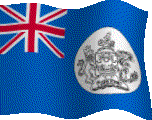



German is an Indo-Germanic language that has existed in one form or another for almost 2000 years.
German is an inflected language and as such is considered quite difficult in comparison to a non-inflected language like Chinese.
An inflected language is one, for example, where the endings of words (mostly verbs) can be changed or added to in order to express a time (past, present, future) and the duration in which something happened. And much more!
Other examples of highly-inflected languages are Japanese and other European languages like French and Italian.
German is related to English as English was developed out of Old German and Old French into what is modern-day English.
As such, there are some words that are the same in German or English and many that sound kind of similar. Here are some examples:
While these words are, they written exactly the same in both languages, they are of course pronounced slightly different.
Of course the opposite is also true, and there are many words from English that made their way in their entirety into German and this number is seemingly only increasing in time. Just think of Hobby, E-Mail, Internet, Computer, Baby, Cool, Nice...
Most words in German can be categorized into one of the 4 groups: Nomen or nouns, Verben or verbs, Adjektive or adjectives and Adverbien or adverbs and Präpositionen/Verhältnisworte or prepositions
The most important ones in German are of course the Nomen and Verben. With only these two word types you can only create very simple sentences. But without either of these word types, you cannot create a correct sentece at all.
Side note, if you ever read a book on German grammar you might see Substantive written in the place of Nomen. Don't worry, these things are one and the same thing.
| Descriptor | German | English |
| 1st person singular | Ich | I |
| 2nd person singular | Du(infor.), Sie(for.) | You |
| 3rd person singular | Er, Sie, Es | He, She, It |
| 1st person plural | Wir | We |
| 2nd person plural | Ihr | You |
| 3rd person plural | Sie | They |
Before we get onto the basic verb order, let's quickly recap on what a noun is. A noun can be directly translated into German as Nomen though it is more often called a Substantiv in Germany. A noun, as in most other languages is a class of word that refers to anyting "concrete" like a people, places, things/objects, names and many more. Within a German text you can spot nouns pretty quickly as they're always capitalized - meaning the first letter of the word is always written as capital letter. This is a major difference when comparing German and English texts. Take this example text and see how many nouns you can spot using this rule:
Robi, das rote Gummibärchen, hat seine Freunde verloren und sucht sie in einem filmreifen Abenteuer.
(Taken from https://sinnblock.de/kurzgeschichten)
Fun fact: Just above, in the previous section we've already talked about a kind of noun: a pronoun. Be careful however, as pronouns are an exception when it comes to the capitalization rule. They aren't always written capitalized!
The basic worder in German is S-V-O (Subjekt-Verb-Objekt).
Depending on the time Präsenz, Präteritum, Perfekt, Plusquamperfekt, Futur I and Futur II (Present perfect,Preterite, Perfect, Pluperfect/Past perfect, Future I, Future II),
the endings for the verbs change as well as depending on the subject. They are conjugated.
For now we will focus on the present tense only for simplicity.
This is the conjugation table for the fundamental German verbs to be and to have.
Just like in Cantonese, these verbs are rather the exception to the rule than the rule.
So they should commited to memory as soon as possible. Seriously.
| Verbs: | Sein (to be) | Haben (to have) |
| Ich | bin | habe |
| Du, Sie | bist, sind | hast, haben |
| Er, Sie, Es | ist | hat |
| Wir | sind | haben |
| Sie | sind | haben |
| Ihr | seid | habt |
Like most languages that come to my mind right now, in the German, the adjective usually comes before before the object (unless connect with a 'to be' verb). Adjectives are conjugated depending on whether the noun is in singular or plural form
You have already learned how the articles Der, die, das work (or rather that the German language uses them).
In the German language, before a noun there always is an article.
But how do we say "My child bought a car" ?
Maybe it doesn't sound wrong to you but saying "Mein Kind kaufte der Auto" (=My child bought the car) would be the wrong translation here.
There correct translation would be "Mein Kind kaufte ein Auto"
As you can see, the unbestimmte Artikel in German take up the place of "a" and "an" from English. The rules for which a unbestimmter Artikel is used is as follows.
When do you know when to use the unbestimmter Artikel? If the sentence you want to say in German uses an "an" or "an" in English then most likely you will need the unbestimmter Artikel in German. Another rule of thumb would be, if the object you are talking about is unknown to you, for example if it has no name. Examples:
Coming soon...